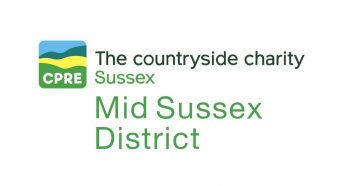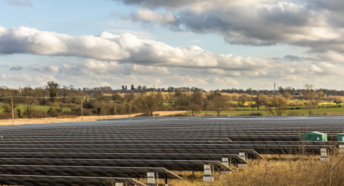The most important question of all?

Kent author Penny Worms has put together a delightful book that offers children and adults alike an insight into the ecological connectivity of the world around us
Its title seems to brook no argument, but Penny Worms’s book The Most Important Animal of All poses what is in effect a question that is entirely, and deliberately, open to debate.
It is one of author Penny’s “star titles” and comes after 30 years of working as an editor and writer. With much of her writing work being commissioned and the role of editor being “almost like a producer putting the team together”, Penny – originally from Maidstone but now living in Tunbridge Wells – felt it was time to focus more on her own ideas.
And so, among others, The Most Important Animal of All was born. It tells how on the first day of term seven children are asked by a teacher to champion their chosen animal for the No 1 spot. At the end of term, the class is to decide which is, well, the most important of them all…
Early inspiration had come from the Earthwatch ‘Irreplaceable’ debate at the Royal Geographical Society in which five scientists competed for audience votes on which was the most invaluable species (bees won).
Of course, Penny’s commissioning experience came in useful and artist Hannah Bailey was brought in to provide the illustrations; the pair “worked together very closely after that”.
Despite being “massively interested” and wanting to “go and sit in a hide to learn about birds”, Penny is not an ecologist so pulled in Alex Morss, who is and who went through the transcript before it was sent to the British Ecological Society, where a team scrutinised it yet further.
“Luckily, the BES loved it and endorsed it,” said Penny, who in The Most Important Animal of All has written a children’s book that also offers plenty for folk of an older vintage to consume.
“There’s loads for adults to learn – that was one of the reasons I chose the animals I did. Each animal has its own ecological insight – bats, for example, are often demonised as a source of disease, but they perform an invaluable service for the wider environment.
“The selection also gave Hannah a range of diverse landscapes to work with. The book is definitely cross-generational. That’s why children’s books are brilliant – I love what some publishers are putting out there, taking us back to basics.”
So what, in the longer term, was Penny hoping to achieve with the book?
“There’s so much climate anxiety in children, I wanted to do something positive and explain why keystone species are so important for the environment,” she said.
“It’s about caring and growing up with the belief that all species are important and being aware of the need to do something to help. It’s an informative book that is both insightful and inspirational. It had children thinking critically.
“It’s gone down so well in schools. There’s a project in Yorkshire where eight schools are coming together to study the book and debate which is the most important animal – there will be about 300 youngsters joining the debate.
“I suppose this is my vision coming to life.”
- The Most Important Animal of All is available from bookshops and online retailers, but if you would like to buy a copy (or several!), use the code CPRE on Penny’s website www.mamamakesbooks.com and £1 per copy will be donated to CPRE Kent
- A number of important documents have yet to emerge. For example, a rigorous transport plan and a finalised air-quality assessment. The latter is critical given that allocations at Teynham will feed extra traffic into AQMAs.
- There seems to be no coherent plan for infrastructure delivery – a key component of the plan given the allocations being proposed near the already crowded Junction 7.
- There seems to have been little or no cooperation with neighbouring boroughs or even parish councils within Swale itself.
The removal of a second consultation might have been understandable if this final version of the plan were similar to that being talked about at the beginning of the consultation process. It is, however, radically different in the following ways:
- There has been a major shift in the balance of housing allocations, away from the west of the borough over to the east, especially around the historic town of Faversham. This is a move that raises many concerns.
- A new large allocation, with accompanying A2 bypass, has appeared around Teynham and Lynsted, to which we are objecting.
- Housing allocations in the AONB around Neames Forstal that were judged “unsuitable” by the council’s own officers have now appeared as part of the housing numbers.
- Most of the housing allocations being proposed are on greenfield sites, many of them on Grade 1 agricultural land – a point to which we are strongly objecting.
Concerns about the rush to submit the plan
The haste with which the plan is being prepared is especially worrying given the concentration of housing in Faversham. If the town is to take a large amount of new housing, it is imperative that the policies concerning the area are carefully worked out to preserve, as far as possible, the unique nature of the town. The rush to submit the plan is likely to prove detrimental.
As Swale does not have a five-year land housing supply, it is open to speculative development proposals, many of which would run counter to the ideas contained in the current plan. Some are already appearing. This is a common situation, and one that, doubtless, is a reason behind Swale’s haste.
Our overriding fear, however, is that this emphasis on haste is ultimately going to prove counterproductive. This is because it is our view that the plan, in its current form, is unlikely to pass independent examination. We are urging Swale to listen to and act upon the comments being made about the plan and to return the plan to the council with appropriate modifications before submitting it to the Secretary of State.
Essentially, this means treating the current consultation not as the final one but as the ‘lost’ second consultation.
The consultation ends on Friday 30 April and we strongly urge residents to make their opinions known if they have not already done so.
Further information








